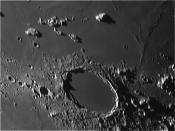By comparing and contrasting the requirements necessary for the appropriation of knowledge or wisdom in the examples of both Thomas Hobbes in Leviathan and Plato in The Republic an explanation will be given as to the relationship between nature and reason. In using this explanation it will illustrate the differing implications for each ruler in the aforementioned literature concluding that both rulers in each regime act as the guiding reason of the state.
In Plato's doctrine of wisdom it becomes clear that it resides outside of nature and is associated with the eternal and is thus permanent. According to Plato, knowledge is something to be strived for; it is a good that is an end to itself internally, for its own sake but it can't be obtained in this world. Plato contends that the only thing that provides concrete knowledge and wisdom of the world, and of the Good, is relied solely upon the transcendental forms from an internal natural aptitude.
Plato also held that not everyone was able to grasp these forms; that nature did not allocate the necessary faculties evenly throughout the population as represented by the Myth of the Metals (94).
By way of Socrates' view of justice in the soul (it is like health in the body) we come to see the utilization of reason in The Republic. Reason is what knows what is best and harmonious for all the parts within the tripartite soul (121). Mirrored in the notion of a just state reason is that which determines the proper distribution of tasks among its citizens and dictates the ideal state would be ruled by those who are educated and trained to rule, while having no further possessions or interests. These qualifications are fulfilled by the philosopher (439).
What is the opinion of...


